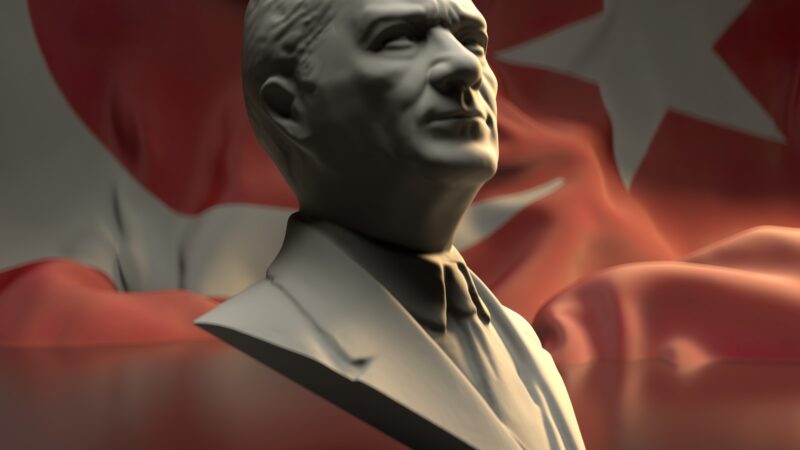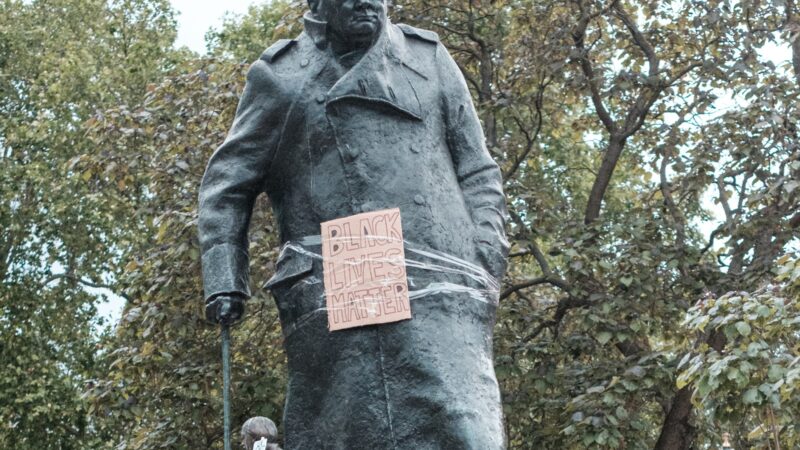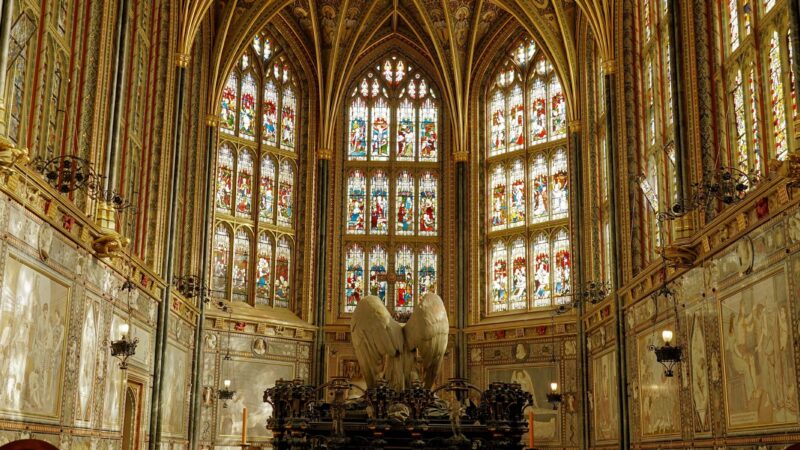Atatürk: A Legacy Under Threat
The founders of countries occupy a unique position within modern society. They are often viewed either as heroic and mythical figures or deeply problematic by today’s standards – take the obvious examples of George Washington. Long-held up by all Americans as a man unrivalled in his courage and military strategy, he is now a figure of vilification by leftists, who are eager to point out his ownership of slaves.
Whilst many such figures face similar shaming nowadays, none are suffering complete erasure from their own society. That is the fate currently facing Mustafa Kemal Atatürk, whose era-defining liberal reforms and state secularism now pose a threat to Turkey’s authoritarian president, Recep Tayyip Erdoğan.
To understand the magnitude of Atatürk’s legacy, we must understand his ascent from soldier to president. For that, we must go back to the end of World War One, and Turkey’s founding.
The Ottoman Empire officially ended hostilities with the Allied Powers via the Armistice of Mudros (1918), which amongst other things, completely demobilised the Ottoman army. Following this, British, French, Italian and Greek forces arrived in and occupied Constantinople, the Empire’s capital. Thus began the partitioning of the Ottoman Empire: having existed since 1299, the Treaty of Sèvres (1920) ceded large amounts of territory to the occupying nations, primarily being between France and Great Britain.
Enter Mustafa Kemal, known years later as Atatürk. An Ottoman Major General and fervent anti-monarchist, he and his revolutionary organisation (the Committee of Union and Progress) were greatly angered by Sèvres, which partitioned portions of Anatolia, a peninsula that makes up the majority of modern-day Turkey. In response, they formed a revolutionary government in Ankara, led by Kemal.
Thus, the Turkish National Movement fought a 4-year long war against the invaders, eventually pushing back the Greeks in the West, Armenians in the East and French in the South. Following a threat by Kemal to invade Constantinople, the Allies agreed to peace, with the Treaty of Kars (1921) establishing borders, and Lausanne (1923) officially settling the conflict. Finally free from fighting, Turkey declared itself a republic on 29 October 1923, with Mustafa Kemal as president.
His rule of Turkey began with a radically different set of ideological principles to the Ottoman Empire – life under a Sultan had been overtly religious, socially conservative and multi-ethnic. By contrast, Kemalism was best represented by the Six Arrows: Republicanism, Populism, Nationalism, Laicism, Statism and Reformism. Let’s consider the four most significant.
We’ll begin with Laicism. Believing Islam’s presence in society to have been impeding national progress, Atatürk set about fundamentally changing the role religion played both politically and societally. The Caliph, who was believed to be the spiritual successor to the Prophet Muhammad, was deposed. In their place came the office of the Directorate of Religious Affairs, or Diyanet – through its control of all Turkey’s mosques and religious education, it ensured Islam’s subservience to the State.
Under a new penal code, all religious schools and courts were closed, and the wearing of headscarves was banned for public workers. However, the real nail in the coffin came in 1928: that was when an amendment to the Constitution removed the provision declaring that the “Religion of the State is Islam”.
Moving onto Nationalism. With its roots in the social contract theories of thinkers like Jean-Jacques Rousseau, Kemalist nationalism defined the social contract as its “highest ideal” following the Empire’s collapse – a key example of the failures of a multi-ethnic and multi-cultural state.
The 1930s saw the Kemalist definition of nationality integrated into the Constitution, legally defining every citizen as a Turk, regardless of religion or ethnicity. Despite this however, Atatürk fiercely pursed a policy of forced cultural conformity (Turkification), similar to that of the Russian Tsars in the previous century. Both regimes had the same aim – the creation and survival of a homogenous and unified country. As such, non-Turks were pressured into speaking Turkish publicly, and those with minority surnames had to change, to ‘Turkify’ them.
Now Reformism. A staunch believer in both education and equal opportunity, Atatürk made primary education free and compulsory, for both boys and girls. Alongside this came the opening of thousands of new schools across the country. Their results are undeniable: between 1923 – 38, the number of students attending primary school increased by 224%, and 12.5 times for middle school.
Staying true to his identity as an equal opportunist, Atatürk enacted monumentally progressive reforms in the area of women’s rights. For example, 1926 saw a new civil code, and with it came equal rights for women concerning inheritance and divorce. In many of these gender reforms, Turkey was well-ahead of other Western nations: Turkish women gained the vote in 1930, followed by universal suffrage in 1934. By comparison, France passed universal suffrage in 1945, Canada in 1960 and Australia in 1967. Fundamentally, Atatürk didn’t see Turkey truly modernising whilst Ottoman gender segregation persisted
Lastly, let’s look at Statism. As both president and the leader of the People’s Republican Party, Atatürk was essentially unquestioned in his control of the State. However, despite his dictatorial tendencies (primarily purging political enemies), he was firmly opposed to dynastic rule, like had been the case with the Ottomans.
But under Recep Tayyip Erdoğan, all of this could soon be gone.
Having been a high-profile political figure for 20 years, Erdoğan has cultivated a positive image domestically, one focused on his support for public religion and Turkish nationalism, whilst internationally, he’s received far more negative attention focused on his growing authoritarian behaviour. Regarded widely by historians as the very antithesis of Atatürk, Erdoğan’s pushback against state secularism is perhaps the most significant attack on the founder’s legacy.
This has been most clearly displayed within the education system. 2017 saw a radical shift in school curriculums across Turkey, with references to Charles Darwin’s theory of evolution being greatly reduced. Meanwhile, the number of religious schools has increased exponentially, promoting Erdoğan’s professed goal of raising a “pious generation of Turks”. Additionally, the Diyanet under Erdoğan has seen a huge increase in its budget, and with the launch of Diyanet TV in 2012, has spread Quranic education to early ages and boarding schools.
The State has roles to play in society but depriving schoolchildren of vital scientific information and funding religious indoctrination is beyond outrageous: Soner Cagaptay, author of The New Sultan: Erdoğan and the Crisis of Modern Turkey, referred to the changes as: “a revolution to alter public education to assure that a conservative, religious view of the world prevails”.
There are other warning signs more broadly, however. The past 20 years have seen the headscarf make a gradual reappearance back into Turkish life, with Erdoğan having first campaigned on the issue back in 2007, during his first run for the presidency. Furthermore, Erdoğan’s Justice and Development Party (AKP), with its strong base of support amongst extremely orthodox Muslims, has faced repeated accusations of being an Islamist party – as per the constitution, no party can “claim that it represents a form of religious belief”.
Turkish women, despite being granted legal equality by Atatürk, remain the regular victims of sexual harassment, employment discrimination and honour killings. Seemingly intent on destroying all the positive achievements of the founder, Erdoğan withdrew from the Istanbul Convention (which forces parties to investigate, punish and crackdown on violence against women) in March 2021.
All of these reversals of Atatürk’s policies reflect the larger-scale attempt to delete him from Turkey’s history. His image is now a rarity in school textbooks, at national events, and on statues; his role in Turkey’s founding has been criminally downplayed.
President Erdoğan presents an unambiguous threat to the freedoms of the Turkish people, through both his ultra-Islamic policies and authoritarian manner of governance. Unlike Atatürk, Erdoğan seemingly has no problems with ruling as an immortal dictator, and would undoubtedly love to establish a family dynasty. With no one willing to challenge him, he appears to be dismantling Atatürk’s reforms one law at a time, reducing the once-mythical Six Arrows of Kemalism down to a footnote in textbooks.
A man often absent from the school curriculums of Western history departments, Mustafa Kemal Atatürk proved one of the most consequential leaders in both Turkish history, and the 20th Century. A radical and a revolutionary he may have been, but it was largely down to him that the Turkish people received a recognised nation-state, in which state secularism, high-quality education and equal civil rights were the norm.
In our modern world, so many of our national figures now face open vilification from the public and politicians alike. But for Turkey, future generations may grow up not even knowing the name or face of their George Washington. Whilst several political parties and civil society groups are pushing back against this anti-Atatürk agenda, the sheer determination displayed by Erdoğan shows how far Turks must yet go to preserve the founder’s legacy.










Cause for Remembrance
As the poppy-adorned date of Remembrance Sunday moves into view, with ceremonies and processions set to take place on the 12th November, I couldn’t help but recall a quote from Nietzsche: “The future belongs to those with the longest memory.”
Typical of seemingly every Nietzsche quote it is dropped mid-essay with little to no further context, moulded to fit the context of the essay being written with little to no regard for the message which Nietzsche is trying to convey to the reader; a message which journalist and philosopher Alain de Benoist outlines with expert clarity:
For Nietzsche, a fixation on remembrance, on recollecting everything that has been and everything that will be, keeps us rooted in our regrets and our failures; it deprives us of the joys which can be found in the present moment and breeds resentment in the minds of men.
As such, it is wise to be select with what we remember and how we remember it, should we want to spare ourselves a lifetime of dizzying self-pity and further dismay. In my mind, as well as millions of others, the most destructive wars in human history would qualify for the strange honour of being ‘remembered’, yet so too would other events, especially those events which have yet to achieve fitting closure and continue to encroach upon the present.
As of this article’s publication, it is the 20th anniversary of the disappearance of Charlene Downes, presumed murdered by the Blackpool grooming gangs. At the time of her murder, two Jordanian immigrants were arrested. Iyad Albattikhi was charged with Downes’ murder and Mohammed Reveshi was charged with helping to dispose of her body. Both were later released after denying the charges.
Currently, the only person sentenced in relation to the case was Charlene’s younger brother, who was arrested after he punched a man who openly joked that he had disposed of Charlene’s body by putting it into kebabs, according to witness testimony; information which led the police to change their initial missing person investigation to one of murder.
As reported in various media outlets, local and national, throughout their investigation, the police found “dozens more 13- to 15-year-old girls from the area had fallen victim to grooming or sexual abuse” with an unpublished report identifying eleven takeaway shops which were being used as “honeypots” – places where non-white men could prey on young white girls.
Like so many cases of this nature, investigations into Charlene’s murder had been held up by political correctness. According to conservative estimates, Charlene is just one of the thousands of victims, yet only a granular fraction of these racially motivated crimes has resulted in a conviction, with local councillors and police departments continuing to evade accountability for their role in what is nothing short of a national scandal.
However, it’s not just local officials who have dodged justice. National figures, including those with near-unrivalled influence in politics and media, have consistently ignored this historic injustice, many outrightly denying fundamental and well-established facts about the national grooming scandal.
Keir Starmer, leader of the Labour Party and likely the next Prime Minister, is one such denialist. In an interview with LBC, Starmer said: “the vast majority of sexual abuse cases do not involve those of ethnic minorities.”
If meant to refer to all sexual offences in Britain, Starmer’s statement is highly misleading. Accounting for the 20% of cases in which ethnicity is not reported, only 60% of sexual offenders in 2017 were classed as white, suggesting whites are underrepresented. In addition, the white ethnic category used such reports includes disproportionately criminal ethnic minorities, such as the Muslim Albanians, who are vastly overrepresented in British prisons, further diminishing the facticity of Starmer’s claim.
However, in the context of grooming gangs, Starmer’s comments are not only misleading, but categorically false. Every official report on ‘Group Sexual Exploitation’ (read: grooming gangs) has shown that Muslim Asians were highly over-represented, and the most famous rape gangs (Telford, Rotherham, Rochdale) along with high-profile murders (Lowe family, Charlene Downes) were the responsibility of Asian men.
As shown in Charlie Peters’ widely acclaimed documentary on the grooming gang scandal, 1 in every 1700 Pakistani men in the UK were prosecuted for being part of a grooming gang between 1997 and 2017. In cities such as Rotherham, it was 1 in 73.
However, according to the Home Office, as they only cover a subset of cases, all reports regarding the ethnic composition of grooming gangs necessarily reject large amounts of data. As such, they estimate between 14% (Berelowitz. 2015) and 84% (Quilliam, 2017) of grooming gang members were Asian, a significant overrepresentation, and even then, these figures are skewed by poor reporting, something the reports make clear.
One report, which focused on grooming gangs in Rotherham, stated:
Another report, which focused on grooming gangs in Telford, stated:
If crimes committed by Asians were deliberately not investigated, whether to avoid creating ethnic disparities to remain in-step with legal commitments to Equality, Diversity, and Inclusion, or to avoid appearing ‘racist’ in view of the media, estimates based on police reports will be too low, especially when threats of violence against the victims is considered:
Overall, it is abundantly clear that deeds, not words, are required to remedy this ongoing scandal. The victims of the grooming gang crisis deserve justice, not dismissal and less-than-subtle whataboutery. We must not tolerate nor fall prey to telescopic philanthropy. The worst of the world’s barbarities will not be found on the distant horizon, for they have been brought to our shores.
As such, we require an end to grooming gang denialism wherever it exists, an investigation by the National Crime Agency into every town, city, council and police department where grooming gang activity has been reported and covered-up, and a memorial befitting a crisis of this magnitude. Only then will girls like Charlene begin to receive the justice they deserve, allowing this crisis to be another cause for remembrance, rather than a perverse and sordid aspect of life in modern Britain.
Photo Credit.